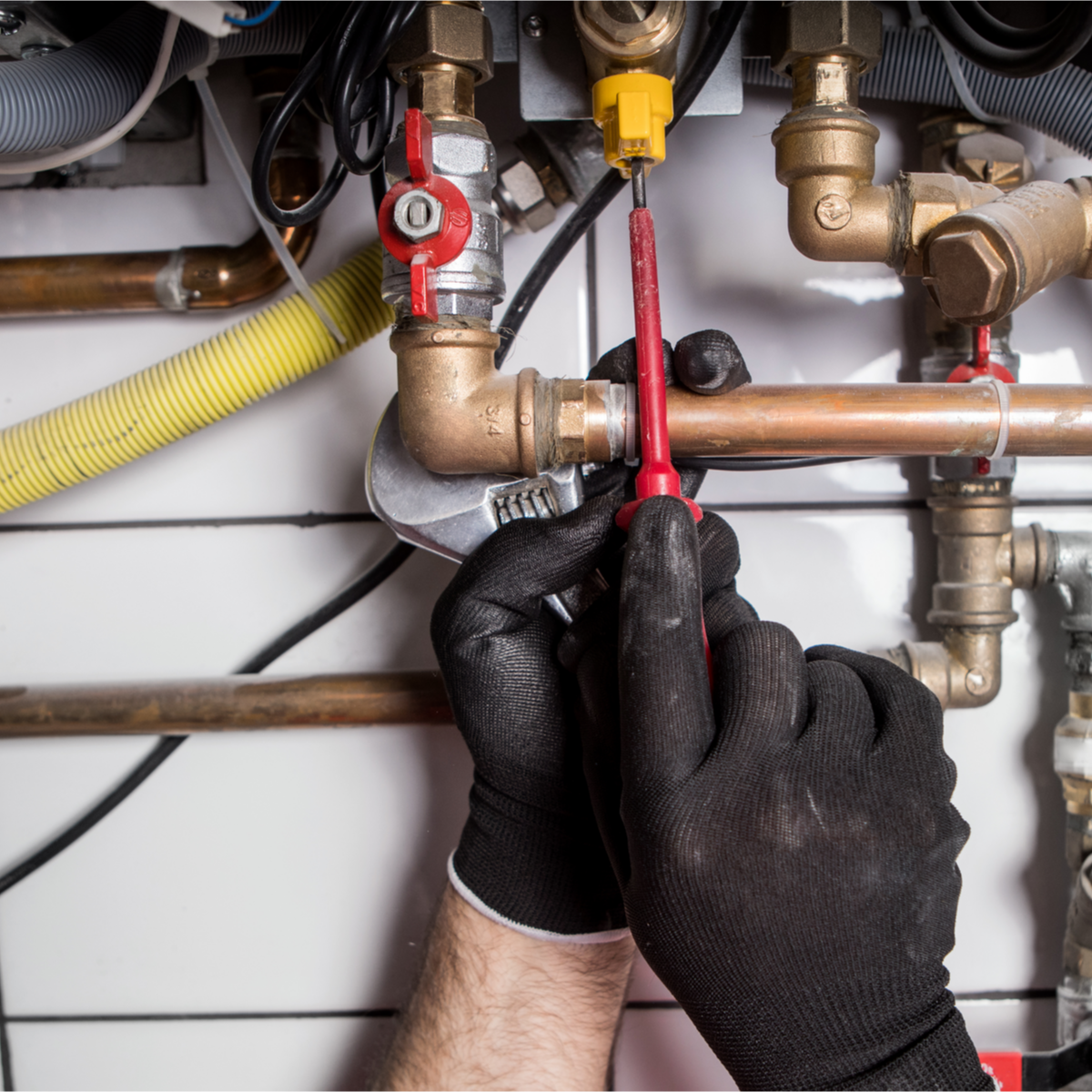
Boilers are essential pieces of equipment for any facility. Whether they provide heating to keep everybody warm or produce steam that is used in production, boilers have to stay operational. Clean boilers work longer, simple as that. Without proper cleaning, your boiler will fail sooner and cost more to operate.
Parts of a Boiler
The parts of a boiler fall into one of two categories: fireside or waterside. Fireside components involve the parts of the boiler that bring air and gas in, burn them, and exhaust the gas away. The waterside components include the parts of the boiler that bring water into the boiler, hold the water as it heats up, and allow the hot water or steam to leave the boiler. Both the waterside and fireside components of a boiler must be kept clean to keep the boiler operating properly and to keep the gas bill in check. Now you know which parts of your boiler need to be kept clean, but how do you do that?
Scaling
Scale is caused by mineral deposits on the waterside of a boiler. Overtime, scale builds up and gets thicker and thicker. This scale inhibits the heat transfer from the fireside to the water, which leads to a higher operating cost with lower performance. Cleaning the scale from a boiler doesn’t have to be that hard. One method for cleaning the scale off a boiler is chemical cleaning. Chemical cleaning uses chemicals to eat away the scale built on the waterside of the boiler.
Fouling
The fireside of a boiler can suffer from buildups that affect performance as well. The fuel source that the boiler burns greatly determines how much soot and corrosion will build up on the fireside. Natural gas and propane typically produce light fouling, while a wood or oil burning boiler often has heavy fouling that must be cleaned more often. This soot coats the inside of a boiler's burner tubes and acts like insulation. This layer of soot makes it harder for the heat to warm the water in the boiler, resulting in hotter air being exhausted and more fuel being consumed.
What Tools Do I Need?
So now you know some of the most common components that need cleaning on a boiler, but what tools do you need to do the job? Anyone doing boiler maintenance should have access to these must-have tools: brushes, rods or punches, and chemical descalers.
Sometimes there’s just no replacement for some elbow grease. Knowing which brush to use will ensure that cleaning the fireside of your boiler is as efficient as possible. Some of the most popular tools for cleaning boilers are:
- Soot Vac.
- Steel spring brushes - good for moderate fouling.
- Brass brushes - good for moderate fouling.
- Fire tube scraper - great for thick deposits.
If you don’t want to pass the brush down the boiler tube by hand, you’ll need a machine to help you out. Either a straight punch or turbine style tube cleaner will save you on labor by doing the hard work for you. These pieces of equipment pass the brush through the inside of the burner tubes, removing any deposits with the brush. Straight punch tube cleaners go straight down the tube and back. Turbine style tube cleaners rotate the brush as it goes down the tube, giving a deeper clean for deposits that are harder to remove. Both styles can be fitted with vacuum cleaners that will suck all of the buildup out of the burner tube as it is removed.
Chemical descalers are typically used to remove the deposits on the waterside. These deposits are typically a mix of rust, calcium and limescale - possibly accompanied by other minerals found in water. Usually acids, these chemicals eat away the deposits and remove them from the tubes. Chemical descalers come in a variety of strengths depending on the type and severity of deposits in the boiler. The chemical descalers are usually circulated through the boiler for a time period between four and eight hours to ensure that as many deposits as possible are removed.
Proper boiler maintenance is key not only to a lower energy bill, but to the long life of your boiler. Make sure you have the equipment you need to clean both the waterside and fireside of your boilers. Don’t put off cleaning your boiler any longer! For help with your boiler maintenance, don’t be afraid to reach out to the professionals at Tate Engineering. And for extra help, be sure to download our boiler maintenance checklist today!
